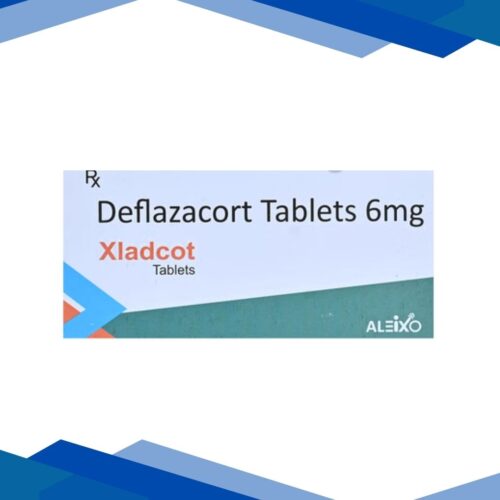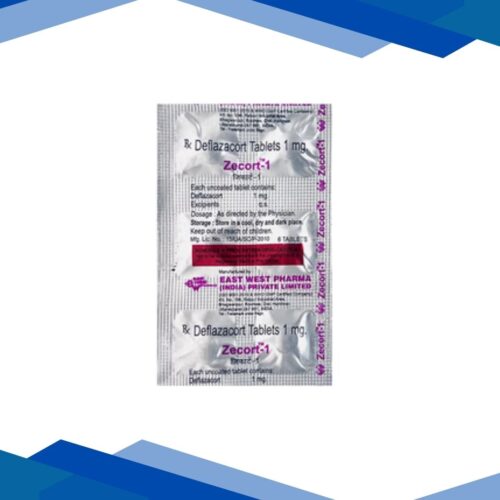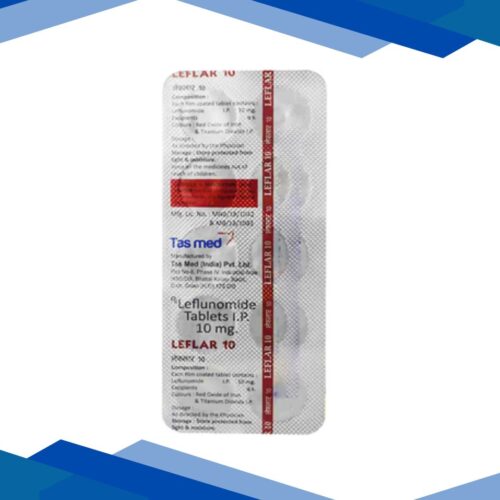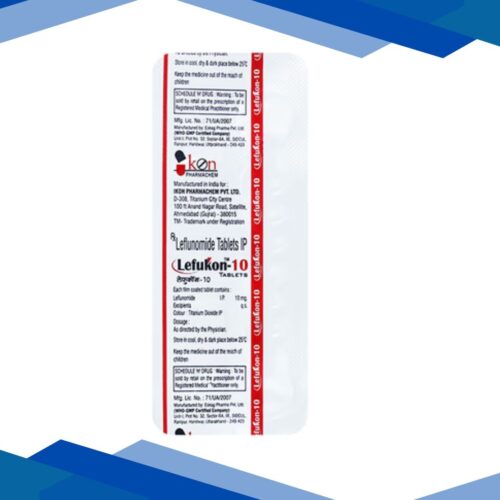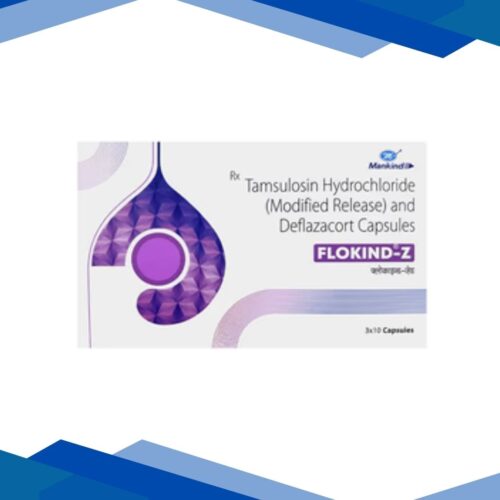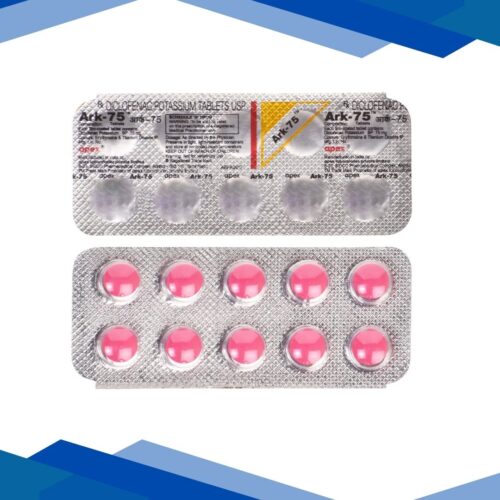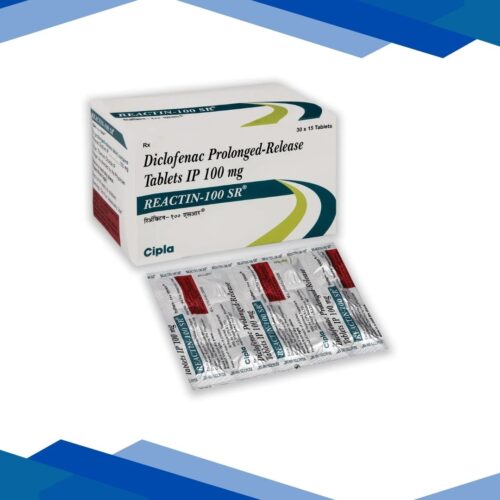FLOKIND Z Capsule 10’s
Bral
No Prescription yet? Don’t worry! Click Here to Get Online Consultation
Why Prescription is Required?
✅ Providing Right Medicines
Prescriptions are complex documents. We proofread and recheck at various steps to provide you the right medication in the correct form and dose.
⚖️ Helps Comply with the Law
Most medicines cannot be sold without a valid prescription, as per the Drugs and Cosmetics Act, 1940 and Rules, 1945.
Book Appointment with Doctor
This combination is used to treat abdominal pain and cramps, especially in conditions like menstrual pain, irritable bowel syndrome (IBS),by reducing inflammation and relaxing stomach muscles.For more details kindly click on Medicine Salts below:
Diclofenac
Diclofenac
OVERVIEW
Diclofenac is a nonsteroidal anti-inflammatory drug (NSAID) used to treat mild-to-moderate pain
CLASSIFICATION
Anti-inflammatory drug (NSAID)
USES
Diclofenac is used for pain relief. It relieves pain in conditions like headache, mild migraine, muscle pain, dental pain, rheumatoid arthritis, ankylosing spondylitis, osteoarthritis, or painful menses.
HOW IT WORKS
It works by blocking the release of certain chemical messengers that cause pain and inflammation (redness and swelling)
DOSAGE
As directed by the physician
PRECAUTIONS
Before taking this drug, patients should keep the following points in mind:
The patient must tell the doctor if he/she is allergic to diclofenac, aspirin, NSAIDs (naproxen, ibuprofen, celecoxib) or any other drugs.
Inform the doctor about the medical history, particularly: asthma (having a history of shortness of breath after taking NSAIDs or aspirin), coagulation or bleeding problems, cardiac issues (such as a previous heart attack), liver disease, nasal polyps, intestinal or stomach problems.
It can cause kidney damage when used for prolonged periods. In the case of any existing kidney issues, the chances of kidney failure can increase with diclofenac consumption.
Inform the doctor about previous surgeries and drug prescriptions.
Do not drive after consuming this drug as it can cause dizziness and drowsiness.
It can cause stomach bleeding, and the risk can increase with the use of tobacco and alcohol.
Older people are at a high risk of intestinal and stomach bleeding, heart attack, and stroke when consuming this drug.
If you have high blood pressure or experience water retention, it’s crucial to inform your doctor before starting diclofenac. Adding an NSAID to your regimen can place extra strain on your heart, especially if it’s already working hard.
If you’ve had a prior ulcer or gastrointestinal bleeding, it’s advisable to consult your doctor before using diclofenac, as your risk for another bleeding episode is elevated.
For individuals with kidney issues or those taking diuretics (water pills), diclofenac use can potentially affect the kidneys’ ability to expel excess fluids. Discuss with your healthcare provider whether diclofenac is suitable for your situation.
If you have asthma and are sensitive to aspirin, there’s a possibility of a severe reaction to diclofenac. Prior to using this medication, it’s essential to have a conversation with your doctor.
SIDE EFFECTS
Nausea
Headache
Dizziness
Vomiting
Flatulence
Constipation
Diarrhea
Abdominal pain
Dyspepsia
Gastrointestinal bleeding
Gastrointestinal ulcer
Rash
Application site irritation
Injection site pain
DISCLAIMER
This content is for informational purposes only. Always consult a healthcare provider for medical advice and proper dosage.
Dicyclomine
DICYCLOMINE
Overview:
Dicyclomine (also known as Dicycloverine) is an antispasmodic and anticholinergic drug used to treat conditions like muscle spasms in the digestive tract.
Classification:
Anticholinergics agents
Uses:
Dicyclomine is primarily used for the treatment of irritable bowel syndrome (IBS), a condition that causes abdominal pain, cramping, bloating, and changes in bowel habits. .
How It Works:
It works by relaxing the smooth muscles of the gastrointestinal (GI) tract, helping to relieve painful intestinal spasms. In addition to IBS, dicyclomine is also used to manage functional bowel disorders, where bowel symptoms occur without any visible structural disease. It is effective in reducing discomfort caused by colicky abdominal pain and GI motility disorders. Occasionally, dicyclomine may be used in other conditions involving muscle spasms, such as intestinal or bladder spasms, though these uses are less common or off-label. It is important to note that while dicyclomine helps control symptoms like pain and cramping, it does not treat the underlying cause of IBS or other GI conditions.
Dosage:
As prescribed by your doctor.
Side Effects:
Dry mouth
Dizziness
Constipation
Weakness
Loss of appetite
Blurred vision
Precautions:
Dicyclomine should be used with caution.It is not safe for people who have certain health problems like glaucoma, myasthenia gravis (muscle weakness), trouble urinating, or blockages in the stomach or intestines. It should also never be given to babies under 6 months old. Older adults may be more sensitive to its side effects, such as confusion, drowsiness, or blurred vision. People with heart issues, high blood pressure, or those exposed to very hot temperatures should be cautious because the medicine can reduce sweating, which may cause overheating. Dicyclomine may interact with other medicines, especially those that cause drowsiness, dry mouth, or are used for depression or sleep. If you are pregnant or breastfeeding, you should only use it if your doctor thinks it’s truly necessary. Since it can affect your ability to think clearly or see properly, avoid driving or using machines until you know how the medicine affects you. Always follow your doctor’s instructions and tell them about any other medicines you’re taking.
Disclaimer:
This content is for informational purposes only. Always consult a healthcare provider for medical advice and proper dosage.
